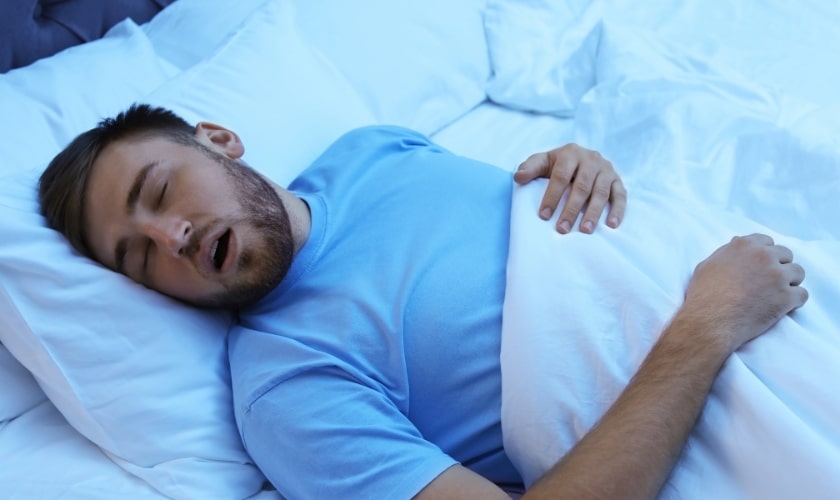Sleep Apnea and Weight Loss: Can Shedding Pounds Improve Your Sleep? Rancho Cucamonga, CA

A frequent disorder called sleep apnea is where breathing repeatedly stops and starts during sleep. It often leads to disrupted rest and can have serious health consequences. One of the factors that can contribute to this is excess weight. Many people wonder if shedding pounds can lessen the intensity of the illness and enhance the quality of their sleep.
In this blog, we’ll explore how weight loss can impact sleep apnea treatment in Rancho Cucamonga and whether losing weight might be a helpful strategy for better sleep.
The Connection Between Sleep Apnea and Weight
Sleep apnea is often linked to obesity, particularly in cases where excess fat accumulates around the neck and throat area. This fat can put pressure on the airway, causing it to become blocked during sleep. Here’s how weight can affect the treatment of sleep apnea:
- Airway Obstruction: Excess weight can lead to fatty deposits around the throat and neck, restricting the airway and obstructing airflow. This obstruction can cause pauses in breathing, a hallmark of sleep apnea.
- Increased Pressure: Obesity can increase the pressure on the chest and lungs, further complicating breathing during sleep. This added pressure can exacerbate the symptoms of sleep apnea.
- Inflammation: Higher body fat levels are associated with increased inflammation throughout the body. This inflammation can contribute to airway swelling and make sleep apnea symptoms worse.
How Weight Loss Can Benefit Sleep Apnea?
Reducing body weight can yield substantial benefits for sleep apnea and overall sleep quality. Here’s how losing weight might help:
- Reduced Airway Pressure: Shedding excess pounds can reduce the fat deposits in the throat and neck area, leading to a wider airway. This reduction in pressure can help decrease the number and intensity of breathing pauses that occur while you sleep.
- Improved Breathing: Losing can help lower the pressure on the chest and lungs, making it easier to breathe while lying down. Sleep that is more peaceful and undisturbed may result from this.
- Decreased Inflammation: Losing weight can help reduce inflammation throughout the body. This reduction in inflammation may lessen airway swelling and contribute to better sleep quality.
- Enhanced Sleep Quality: Studies have shown that people who lose weight often experience improvements in sleep quality and duration. Better sleep can enhance overall health and well-being.
Practical Tips for Weight Loss to Improve Sleep Apnea
If you’re considering losing weight to manage sleep apnea, here are some practical tips to help you get started:
- See a Healthcare Professional: Steer clear of processed meals and sugary drinks before beginning any weight loss program, it’s important to talk to your doctor or a healthcare provider. They can help create a personalized plan that takes into account your health needs and goals.
- Adopt a Balanced Diet: Focus on a diet that includes a variety of nutrient-dense foods. Incorporate feating less processed food and sugar-filled drinks and increasing consumption of fruits, vegetables, lean meats, and whole grains.
- Increase Physical Activity: Regular exercise can support your weight loss and improve overall health. Aim for strength training activities and a minimum of 150 minutes per week of moderate-intensity aerobic exercise.
- Track Your Development: Monitor your development and see how it impacts your sleep. Use a journal or an app to record modifications to your general health and sleep habits.
- Stay Consistent: Losing weight is a gradual process, and consistency is key. Make sustaining adjustments to your way of living over the long term to achieve and keep your desired weight.
Seeking Additional Support
In addition to losing weight, there are other methods and remedies that can assist in controlling this sleep condition. Talk to your healthcare practitioner about the following choices:
- Continuous Positive Airway Pressure (CPAP) Therapy: This common treatment involves wearing a CPAP machine that keeps the airway open during sleep. It can be effective in managing sleep apnea symptoms, especially when combined with losing body weight.
- Positional Therapy: Some people with sleep apnea experience symptoms in Rancho Cucamonga that are worse when sleeping on their back. Positional therapy involves sleeping in different positions to reduce symptoms.
- Lifestyle Modifications: Other lifestyle changes, such as avoiding alcohol and smoking, can help improve sleep apnea symptoms.
Weight Loss and Sleep Apnea
Losing weight can be a valuable tool in managing sleep apnea treatment in Rancho Cucamonga and improving sleep quality. By reducing excess weight, you may find relief from the symptoms and enjoy better, more restful sleep. It’s important to approach weight loss with A well-rounded routine comprising a healthy diet, consistent exercise, and support from healthcare professionals. By making these changes, you can take proactive steps toward better sleep and overall health.





